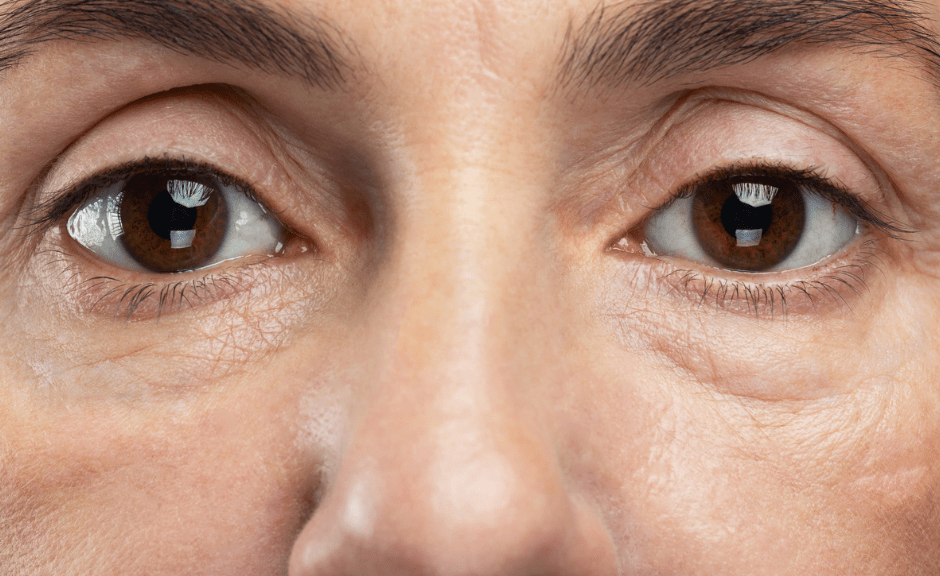
When Mothers Are Aging Faster than Presidents
So I always teach a unit of my university courses on stress, because it has such an impact on communication. And I tend to show this video in class that talks about how mothers of disabled children are too often aging 6 years for every year of caregiving of a sick or disabled child. When I get to that point, I’ve taken to stopping the video lately to explain that presidents, for all the stress of their jobs, actually age considerably less fast than mothers of disabled children tend to. I plan to unwrap that statistic further in this blog post, and unwrap how we should work to advocate for the literal better health of women and other vulnerable populations.
There’s a ton of research behind this, and I can’t promise to unwrap it all by a long shot, but I will do my best to give you some highlights in the next few minutes.
Where I’m Coming From Here
As always, I’m coming at this from the perspective of a pastor’s kid in a right-leaning white Evangelical denomination who went on to become a communication scholar, studying and teaching about stress, trauma, and conflict communication. As a note, I’ve previously talked about the impacts of stress and trauma on health in this blog here and here, among other places.
Teaching About Stress Research
As I mentioned, I show this video about stress research every semester to my university students. It features Nobel-prize-winning scientist Dr. Elizabeth Blackburn and her co-author Dr. Alissa Eppel, who in doing research on the mothers of disabled children learned that unremitting chronic caregiving stress can result in significant aging for these women. You can learn more about this and related research here, here, and here.
While the video talks about six years of aging for every year of caregiving, there are slightly different statistics elsewhere. The fact remains, though, numbers aside—without intervention, vulnerable groups tend to be highly stressed, and that can lead to either more disease and/or an earlier death without shifts to help the situation.
Not Just Death—Also the Diseasespan
Blackburn and Eppel describe in their general audience book The Telomere Effect that even when people under unremitting stress don’t die earlier, they have a longer period in their lives of what they call a “diseasepan”—in other words, more time when their bodies don’t work as well before they die.
The book—and the other readings and videos I show—are full of possible solutions to try to make this situation better, absolutely. I emphasize to my students frequently that there are lots of ways to improve their situations through proven stress management.
Looking More at the Societal Issues We Can All Work to Improve through Advocacy
But here what I want to dwell on first is the societal issues that lead to the counterintuitive findings that these disabled mothers are experiencing much more aging than presidents of the United States do.
And in order to do that, let me quickly overview the findings about presidents and aging, as well as societal hierarchy and stress and illness.
Let’s Talk about (Unhealthy) Hierarchy and Health
See, the same documentary I show in class goes over several research studies, including the Whitehall study and research on primates by Robert Sapolsky, that show that unhealthy forms of hierarchy—in which people (or primates) treat those below them on the totem pole poorly—leads to the most ill health further down the totem pole in both primates and humans.
According to these same studies, those at the top of these same hierarchies tended to live longer and more healthful lives.
On the contrary, societies in which people or primates’ needs get met as much as possible tend to lead to situations where everyone has better health.
Let’s Briefly Talk about War, Shall We?
As a short aside, lots of studies show war is terrible for the health of most people in society, especially those most impacted further down the totem pole.
Ah, the Wandering Uterus!
And speaking of war and its impacts, including that of stress and trauma, now’s a great time to talk about the fact that trauma research, as described in the book Unbroken: The Trauma Response Is Never Wrong, began by assuming it was only a “female problem” related to “wandering uteruses.”
This likely referred to trauma from sexual abuse issues as well as others for women.
Oops, Wait, Men Have This Too…Does That Mean They’re Feminine? (ALL the Eyeroll Emojis!)
It was only when soldiers started coming back from war with the exact same symptoms that it gradually began to dawn on society that stress could have negative impacts in a variety of ways that weren’t always specific to women.
So it’s pretty ironic that we’ve gotten to the place where we tend to perceive (male) US presidents as having more stressful lives than those of women caring for vulnerable populations.
So Wait….Presidents Have Super Stressful Jobs, Don’t They?
My students—who when I ask them whether they’d want to be president usually say no because they expect it’s such a stressful job—are often surprised by these findings.
They’re not alone on this. After all, there is much made of presidents and aging. You can read more about that research here, here, and here.
Spoiler Alert: US Presidents Do Live Longer Than Their Constituents
The research seems to be a bit mixed, but while US presidents do seem to die a few years earlier than leaders in other countries, studies have shown that the superficial signs of aging they often show don’t actually impact their longevity.
In fact, US presidents tend to die later than their constituents.
And even in the most dramatic estimates, presidents don’t age as fast as the mothers of disabled children in Blackburn and Eppel’s studies.
This makes sense in a lot of ways: after all, despite their stressful jobs, presidents usually have a lot of things that their constituents don’t have—access to any exercise they want, excellent healthcare, and excellent task support and wealth, to name a few.
So Let’s Talk about the Former President—You Know, The One that Keeps Getting Indicted
At the same time, these same presidents’ actions, their rhetoric, and the policies they espouse can have a huge impact on the literal health and wellbeing of their constituents.
Take the most recent president before Biden, for instance—as I previously noted here, the American Psychological Association recorded massive upticks in stress about the future of the country when he took office. For the first time since the beginning of the survey, the beginning of his presidency kicked stress about the future of the country up above stressors regarding work and finances.
So the Presidents Themselves Are Doing Fine…But Can Make Others’ Lives Better or Worse
In other words, presidents themselves are in a privileged position where they have the resources they need to do fine, health and longevity wise, despite the stress of the job.
And presidents who espouse unhealthy things literally make everything worse for vulnerable groups.
What the Aging of Mothers with Disabled Children Shows Us about Societal Hierarchies
Which brings us back to the stress and aging in mothers of disabled children.
Now, note that this isn’t the only vulnerable group in the US by a long shot. But the fact that the research shows that fathers of disabled children tend not to have the same effects tells us a lot about our societal hierarchies.
Much has been written, for example, about the fact that women, when they work outside the home, experience extra stress, from what’s called the “second shift” because men tend to take on fewer domestic duties, including the mental load from them.
And yes, let’s talk about the ways in which women’s health and finances are more at risk than men because of income disparities, reproductive health issues, and so on and so forth.
Not to mention that both women and others in abusive environments tend to show much worse health.
How Presidents and Other Leaders in Both Their Rhetoric and Policies Can Literally Hurt People
Which comes back to the ways that the former president’s behavior—and other leaders continuing to espouse similar rhetoric and policies, including fascistic ones—put women and other vulnerable groups more at risk of aging.
We could talk about the overturn of Roe, for instance.
The targeting of social support programs that would help women with disabled children as well as so many others.
The targeting of people of color and LGBTQ+ folks.
So Important to Keep Fighting to Get the Better People in Office
All of these things are a great example of how a single unhealthy leader, supported by other unhealthy individuals (such as the current batch of Republicans in the US, to be frank), can create enormous hardship for others down the societal ladder.
On the other hand, presidents and other leaders that fight for better inclusion and policies that support people in vulnerable groups literally support better health and wellbeing for us all.
Doing What We Can for Ourselves AND Others
And as the stress research I teach shows, while we can all do things as individuals to help us live healthier longer lives, we all need to do what we can to advocate for healthier systems as well. Because both factors affect our health and wellbeing.
What research shows us is that working to put healthier folks with healthier, more equitable policies in leadership positions has a huge impact on the wellbeing of vulnerable groups.
Like I said at the beginning, there’s SO MUCH MORE I could say on this topic, but I’ll stop there for now.
Keeping On in This Relay Marathon
Let’s use our stress energies the best we can to rise to the occasion and try to create a healthier world for us all, folks. What we do on an individual basis absolutely matters tremendously—what we work for collectively also matters.
Let us not grow weary of doing good, my friends.
A Final Charge
Go team #AssertiveSpirituality! Let’s continue to do what we can where we are with what we’ve got to stand up against the toxic crap toward a healthier world for us all. We can do this thing.
Want to help keep this work going? It’s been 5 years of this project, and I finally have tip jars set up at Venmo and PayPal so you can help keep the lights on and such (THANK YOU for whatever you can do!). Here’s the info:
Venmo: @assertivespirituality
PayPal: https://www.paypal.com/donate/?hosted_button_id=Q2QWKELCNATBE
Looking for more resources toward speaking up for what’s right and dealing with the conflict that results?
Boy, do we have got a free “Assertive Spirituality Guide to Online Trolls” for you. It actually helps you with conflict both online and off. To get it, sign up for our email newsletter (either in the top bar or by checking the appropriate box when commenting on this article). Once you’ve confirmed your email address, we’ll send you the link to the guide in your final welcome email. You can unsubscribe at any time, but we hope you’ll stick around for our weekly email updates. As soon as we feasibly can we’re hoping to offer more online courses and other support resources for those advocating for the common good, and if you stay subscribed, you’ll be the first to know about these types of things when they pop up.
Want More Specific Help Applying This Kind of Thing? Message Me at the Assertive Spirituality Facebook Page.

